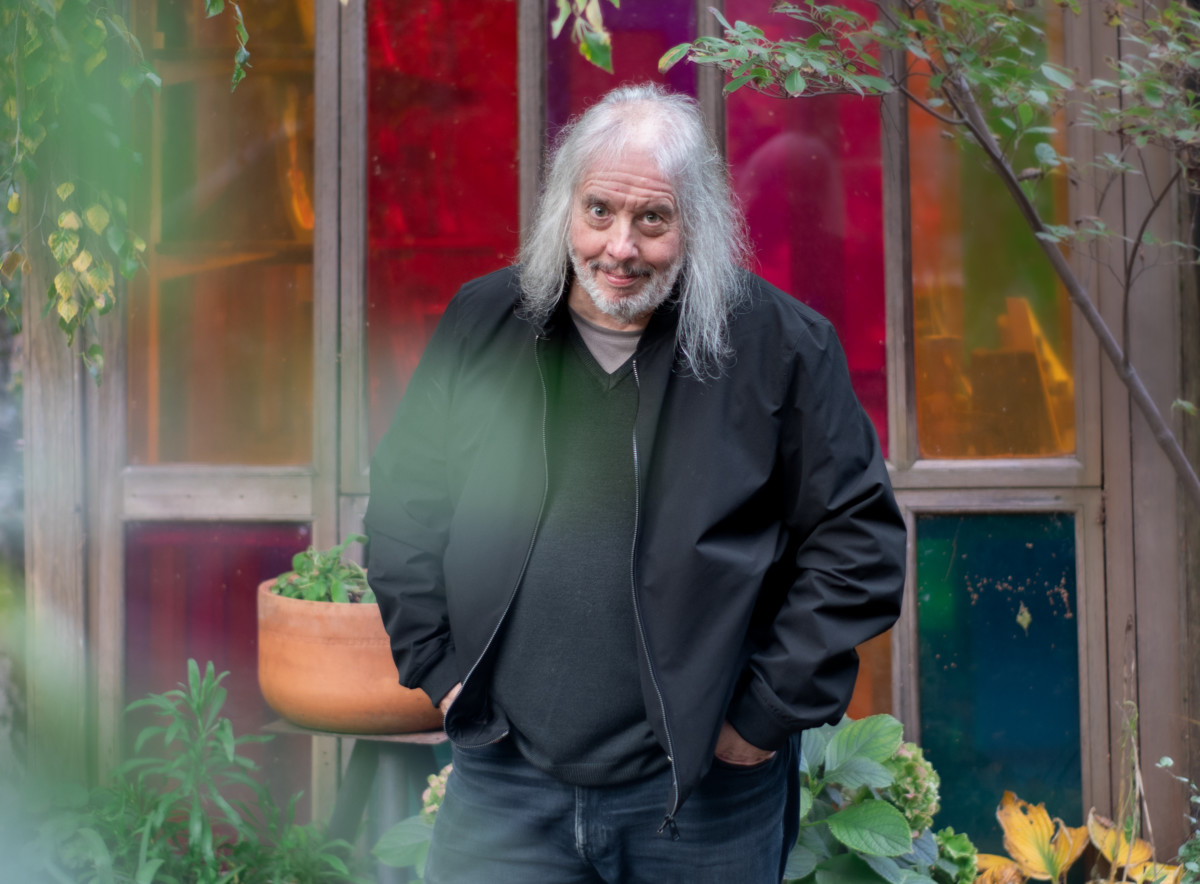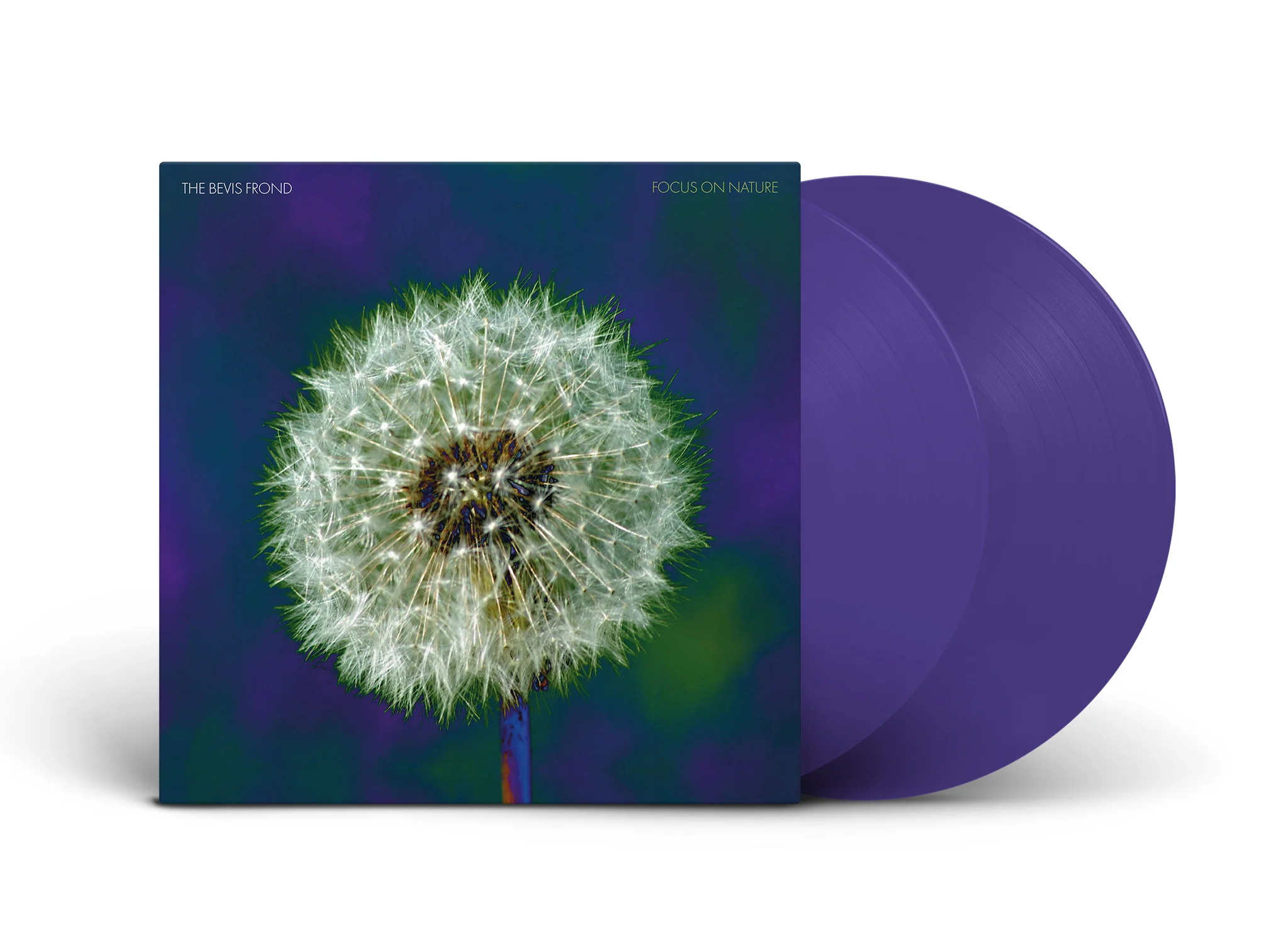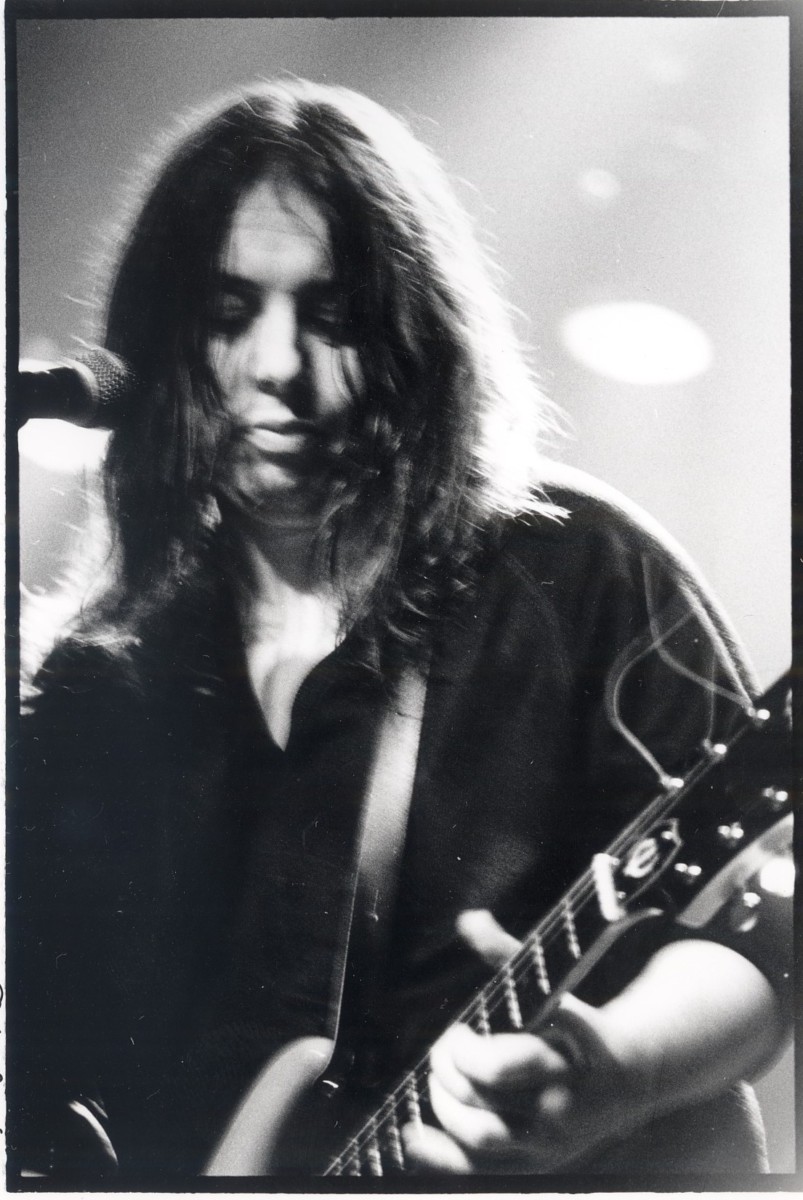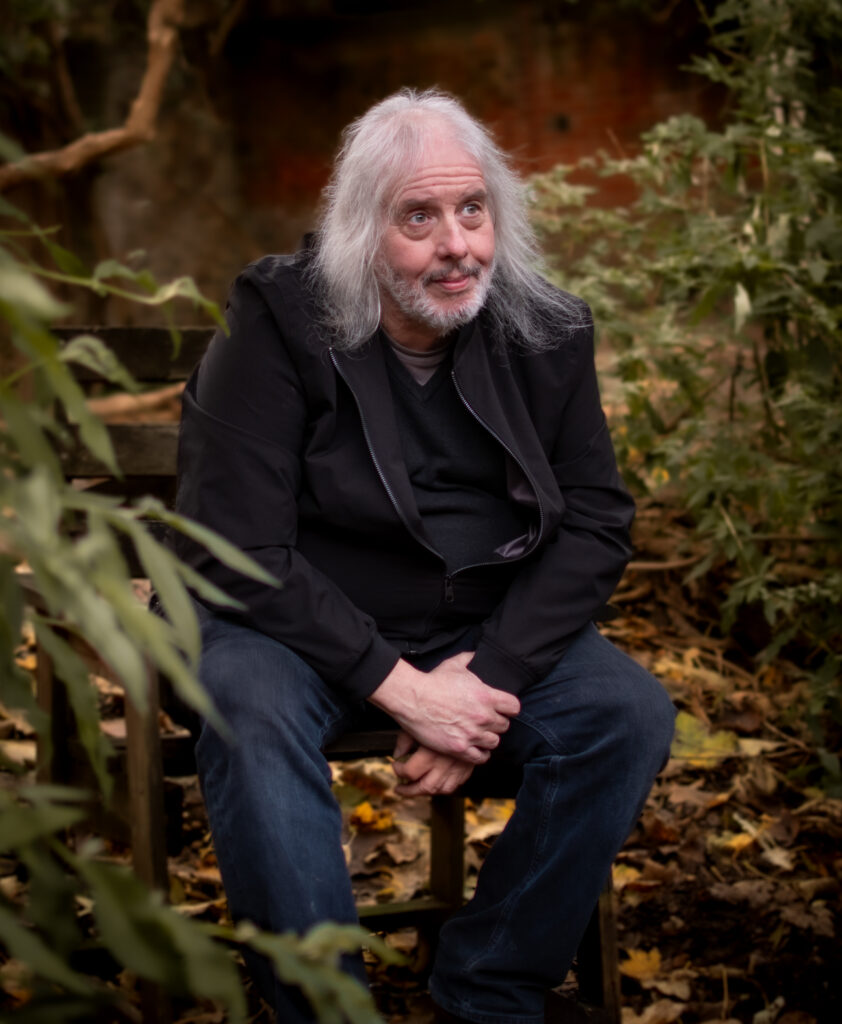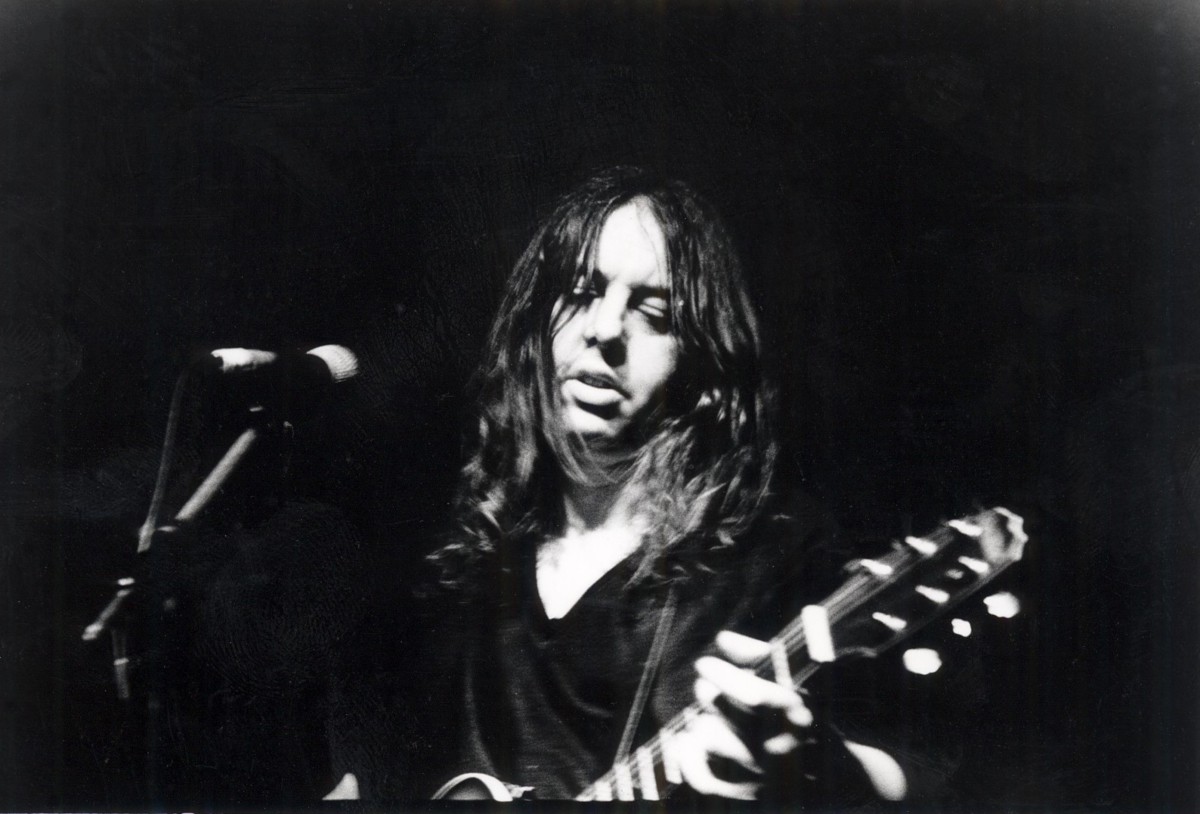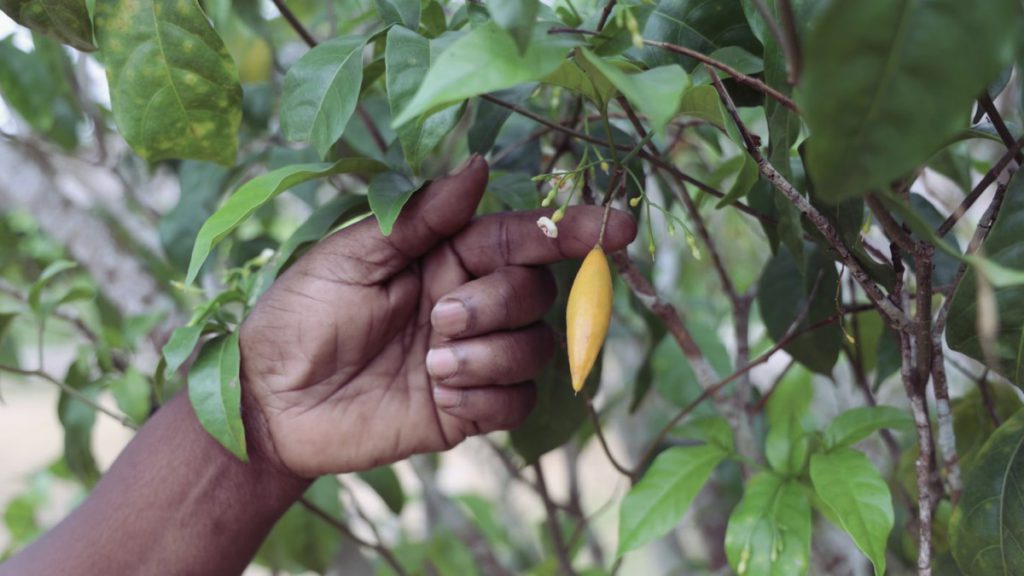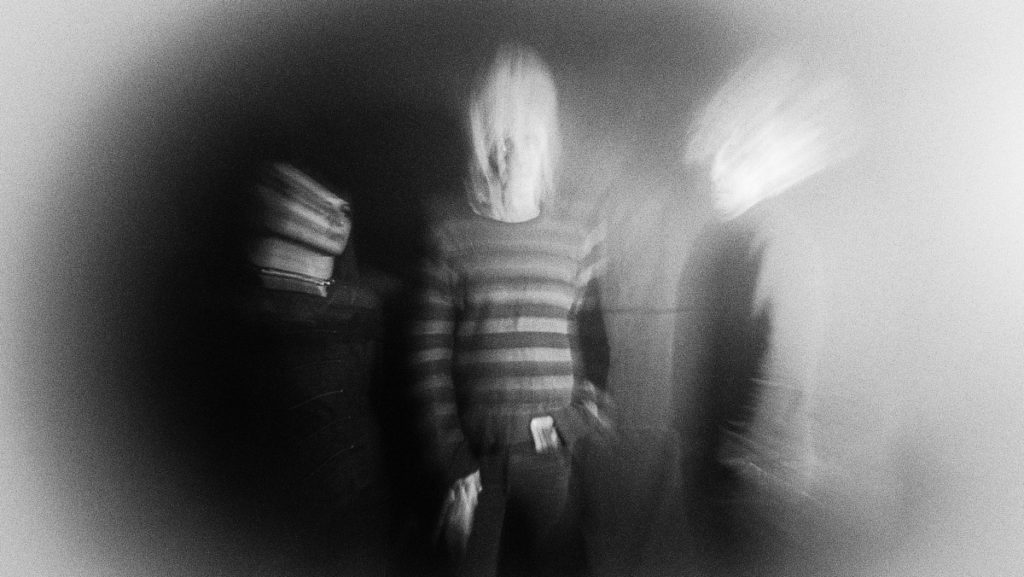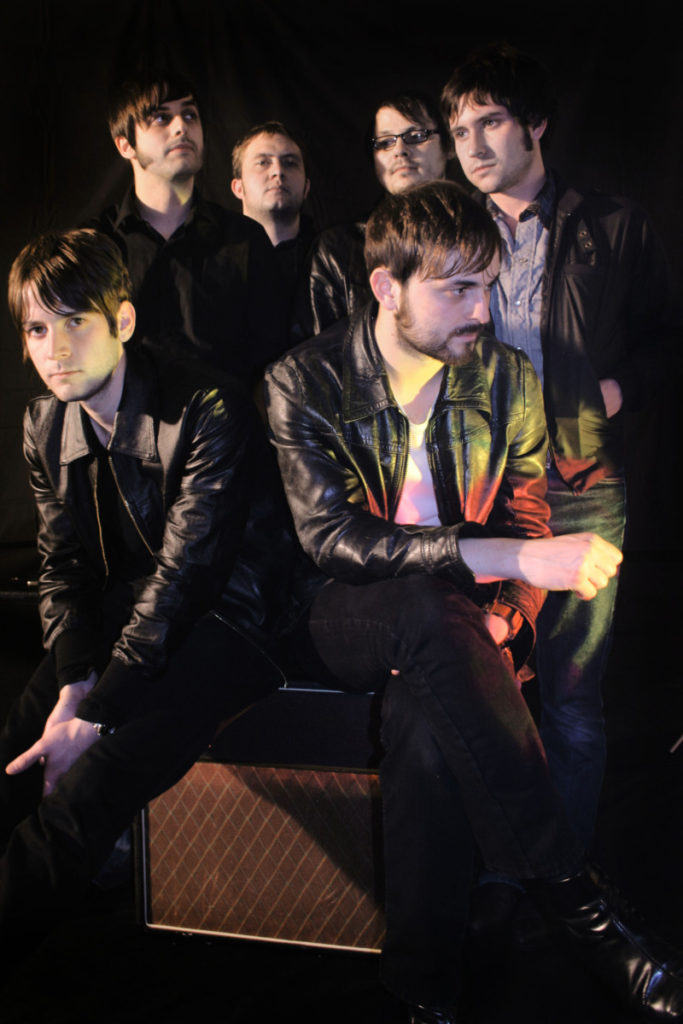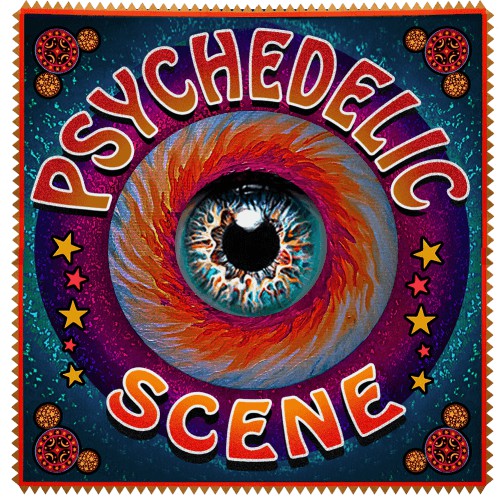Interview: Nick Saloman of The Bevis Frond
Interview: Nick Saloman of The Bevis Frond
LeValley:
This is Jason LeValley with Psychedelic Scene and I’m here with Nick Saloman from the Bevis Frond, who has a new album coming out soon called Focus on Nature.
Nick Saloman:
That’s right.
LeValley:
Thanks for being here, Nick.
Saloman:
My pleasure.
LeValley:
How does the new album, Focus on Nature, differ from previous Bevis Frond material, or does it?
Saloman:
Well, the material, I guess it’s probably not that far away from the material I’ve always been doing, which is kind of writing songs and then arranging them in a certain way and getting a kind of backing that I find suitable. But the last one I did, which was called Little Eden, was done on my own. I recorded it during lockdown, so I was the only person on it. And this one is done with a full band, so it is a bit different. We record all the backing tracks live, so it’s got a kind of pretty spontaneous sound on it, and then just kind of overdubbing little bits of lead guitar and doing the vocals properly, really, and bit of this and that. But the rhythm tracks are all done live, so it would be a little quicker, I suppose, a little less kind of complicated. And it’s out on the 1st of March, I believe, and it’s Bevis Frond, not Beavis Frond.
LeValley:
Right. Did I say Beavis again?
Saloman:
You did, yeah.
LeValley:
Okay, well, I’m sorry about that.
Saloman:
That’s okay.
LeValley:
Yeah. So how does it sound different when you’ve got the full band playing on a recording as opposed to just you playing?
Saloman:
Well, I mean, obviously they can do things better than I can. I wouldn’t class myself as a proper drummer. I can get away with it. I can play enough to make it sound like I know what I’m doing. But if I did it live, pretty soon people would go, ‘He’s got no idea what he’s doing’, but I know enough. It’s a bit like my keyboard playing. I can make it sound like I’ve got a clue, but I wouldn’t want to do it live, really, because I’m not good enough. And not that we’ve got a keyboard player in the van, so, I mean, it’s still going to be my kind of attempt, but we’ve got a proper drummer. And Dave, of course, is a very good drummer, Dave Pierce. And so I think the drumming part of it is going to be a bit of an improvement. And when you’ve got kind of players of the caliber that I’ve got playing with me, Paul Simmons on guitar is a fantastic guitarist, so we were able to share kind of guitar duties and that’s nice because you can bounce off each other quite nicely. And Louis is a great bass player.
Saloman:
He’s not the same kind of bass player. I would say probably a bit more kind of slightly more punk, really. I’m a bit more of a kind of rhythmic kind of stuff, and Louis a little bit more fluid. So, yeah, it gives it a little bit of a different flavor, I think.
LeValley:
Okay, well, just for the record, I listened to Little Eden the other night, and I thought the drumming was good.
Saloman:
Thank you. Yeah. I mean, having said that, most of those tracks took me quite a long time to do the drumming because I’d get, like, halfway through and it would go. I’d try and kind of come out on the wrong (makes drum fill motion).
LeValley:
Right.
Saloman:
I didn’t do loads of drop-ins. I just kind of wanted to get a good take. So I was pretty knackered after I’d finished. But like I say, I think I can get away with it if I do a bit of drumming and bit of keyboards. I don’t think people notice how useless I am, but then I know I’m very limited. So it is much more relaxing to have someone like Dave playing in the studio or any really good drummer, because they know what they’re doing and it’s less stressful.
Anete Lapsa
LeValley:
All right. You and I have something in common, that we’ve each started a magazine. What was your impetus for starting Ptolemaic Terrascope back in the 80s?
Saloman:
Well, yeah, I’ve been doing a lot of record fairs. I was a second hand record dealer until my burgeoning music career started kind of taking hold. And I always used to go down to the Bath Record Fair in the west country because my wife’s folks lived down that way, and we could also combine it with a visit. And I met this guy at the Bath Record Fair. He used to come along every time, and we always had a chat, and he seemed like a nice guy, and that was a guy called Phil McMullen. And Phil and I kind of got on very well. And when we used to go down to the record fair, he’d say, oh, well, come back and have dinner with me and the family, and me and Jan would go around and see Phil and Heather and their two kids, and we had our little daughter with us at the time, so it was kind of nice. And Phil at that time was writing for quite a few magazines, including Bucketful of Brains, and he was getting a little bit fed up with the fact that they stopped sending him albums.
Saloman:
This would be in the 80s before, you know, really, before CDs or the Internet. And they used to send him records to review, but then they started putting the records on cassette and sending him a cassette because they wanted to keep the records. And he kind of was getting a bit like, ‘well, this is a bit crap, really. I’d like to get the records’. And we were chatting about it, and we, you know, I’m a musician and my career as a musician was kind of starting to take off a bit. And Phil was a writer, and I’ve always been interested in writing. So we decided to start doing our own magazine, really.
LeValley:
And how has your involvement in it evolved?
Saloman:
Well, I started off. My involvement, I think, was more the kind of nuts and bolts side of it. Phil did most of the writing. There were three of us involved. There was me, who I did all the kind of practical stuff, like going to get it printed and pick it up from the printers and going, taking it to the distributors and all that kind of stuff. I was the kind of… I did less writing and more driving about telling people what to do. And Phil did most of the writing, I think, and all the artwork was done by a guy called “Cyke” Bancroft, who was another friend of mine. And the three of us started the magazine off, and we had a very… Our idea was that we just write about stuff that we liked, and we’d never give anything a bad review. I thought if we didn’t like something, we wouldn’t review it. I’ve always thought it was a waste of time in magazines when they bring something to your attention that you might not have heard of, to tell you that it’s no good. And I think, well, what’s the point of that?
Saloman:
Yeah. So we decided we were going to go down that route if we got a record. And we thought, no, this is crap. We just didn’t review it. And that was simple. And we talked to people we were interested in, and we all had a kind of similar kind of taste for music. But Cyke was kind of into his folk and his jazz a bit more than I was. Phil was very into his kind of…I suppose he liked people like Man and Hookfoot and all that. And he was also very into what was going on in the 90s as well, with the kind of bands like Guided by Voices and Flying Saucer Attack and all these. And I was more into kind of across the board kind of rock and punk and psych and all that. So we had enough different kind of interests to make it a kind of interesting magazine, I think, and we just kind of interviewed whoever we could. We thought it’d be a good idea to give a free single away with each magazine, which is quixotic really, because it cost us more than we had, really. We were never going to make any money out of it.
Saloman:
And then when CDs took over, we started giving a free CD away with every magazine and yeah, it was great for quite a few years. It became quite an influential little mag in a small sort of way. We never wanted to get it into the big shops or anything because that involved so much hassle with big time distributors and stuff that we thought it’d be nice just to keep it mail order and a few select outlets. So it was good fun and we all enjoyed it and I think we did quite good work.
LeValley:
Great. When we spoke previously you alluded to your mother’s mental illness. What was the diagnosis?
Saloman:
Well, she had several diagnoses. This all happened when I was quite young. I was this kid growing up. My folks split up when I was five and I stayed with my mom. My dad went off and he joined the Royal Air Force and got posted abroad so I didn’t see a lot of him. I mean, he did come to England and I saw him occasionally and it wasn’t a terrible acrimonious divorce. They kind of still spoke to each other and stuff. But I was with my mom and while I was a kid from about the age of five to about eleven, it was kind of okay. She was a bit odd, she had her moments but she was a very clever, very good-looking, clever, talented woman, was great musician. She became a published author in her late life but she was always dogged with kind of issues that I could never get my head around and very few people could. Even her sisters. She had two sisters and she was the oldest of three or the oldest of three but the other two sisters never really knew what it was. But she’d always been a bit peculiar at times.
Saloman:
If people met her, they thought she was fantastic because she was funny and articulate and interesting and good-looking and all that. But she had a kind of side to her that would just flip at a moment’s notice. And from being the most urbane, sociable person, she’d be locked in a bedroom screaming. I got used to it as a kid, I got to say, at the sound of a bit, being a bit kind of unsympathetic, it didn’t really bother me that much, I have to say. I had a load of mates and I had a lot of freedom and it really kind of kicked in when I was about eleven and twelve that then she really started going off the deep end because various things happened in the background. My dad said he was going to come back and marry her again. And we’d all live together in a happy family. And then at the 11th hour he changed his mind and married someone else and that kind of sent her right off the deep end. And, yeah, she’d always had an issue with her father as well that I had not a clue about.
Saloman:
I don’t know and never will know because her sisters didn’t know, but she always had that and it was coming from him. She desperately wanted to be his attention and his love. But the other two sisters, he stayed after her mom died and he was on his own. He used to spend three weeks with one sister, a holiday with another one, stay another three weeks, go up for Christmas. And he never set foot in our flat, ever. Never. The nearest he got was sitting in a car outside and that is in my whole life. And he died when I was about 13, 14 and he’d never ever set foot in our flat. So go figure. I don’t know. Obviously something way back, but it colored his judgment against her and strangely and sadly against me as well because he was, kind of out of all the kids, the two sisters and my mom had kids and out of all of them, I was probably the one who was nearest to what he was about because he was musical and he was quite sporty and he played cricket and football and I was always into sport and I was musical and he just didn’t want to know.
Saloman:
He didn’t want to know. And so when he died, when I was about 13 or 14, I remember my mom saying, ‘Oh, if you don’t want to come to the funeral, if it’s too upsetting for you’. Okay, I won’t come because it wasn’t too upsetting for me. I just thought I didn’t like him. So I thought, well, I won’t waste my time going to his funeral. He never spent any time on me, so why should I go? Which was a bit. I was a bit of a stompy kid, I guess, but I had a lovely time. I had a very happy childhood. It sounds like you could turn me into Anthony Perkins in Psycho very easily. But I had a great time. I got loads of mates. Never felt unwanted or worried about anything, really. I was very positive. Always knew I’d be all right.
LeValley:
Yeah, well, that’s great. Your mom was a teacher, I think, and she taught Adam Ant. Yeah, she did, I think. Didn’t you go to school with him, too?
Saloman:
He was two years younger than me, Stuart (Goddard). What happened was, yeah, he lived around the corner from us and his mom back in… The single parents weren’t so common. You had the kind of three-piece family. You didn’t have a load of mums looking after kids on their own. But Stuart’s mother was a single mother and so my mom was a teacher in the local infant school, so she taught the really young kids from about five, six, seven. And I went through that school. But Stuart, as I say, he was two years younger than me. But my mom and his mom were kind of friends because they were both kind of in the same boat. They were single parents in St John’s Wood and they understood each other. And Stuart was a bit troubled as a little kid because his dad had gone and his dad, well, he wasn’t a great guy. I don’t know. I don’t want to go to details, but he wasn’t a good lad. He was an angry little kid, but he was extremely talented at art. He was a really great artist. And my mom kind of. She just kind of liked him when he was a little kid of about five or six.
Saloman:
And she really kind of worked on him to get his kind of creative side working. And he absolutely adored my mom. He kind of treated her like his second mom and I think he liked my mom more than I did, really, which is a bit harsh, but he was devoted to my mom. In later years, when my mom was older, he’d go around and see my mom and send her postcards. He wouldn’t get in touch with me so much, but he’d go and see my mom and he was devoted to her, really, and she adored him. She actually appeared on. There was a TV documentary after he’d had his. Stuart had had his kind of mental issues and they did this TV documentary in Britain called The Madness of Prince Charming and it was all about how he cracked up and all this stuff. And they interviewed my mom on this TV show which was on BBC, and she was great. I’ve got to say. She just kind of said, ‘Look, the guy has been ill. What are you going to do? You make a documentary about someone being ill? He’s having a hard time’.
Saloman:
She was very dignified and I was very pleased with that. I thought she did really nicely. She came out of that very well.
LeValley:
Okay, great. I know that you’ve written songs for Mary Lou Lord, the Boston Busker.
Saloman:
Yeah.
LeValley:
How did that unlikely collaboration come?
Saloman:
Is it that unlikely? I don’t know.
LeValley:
I don’t know. I mean, she’s sort of a different generation.
Saloman:
Everyone’s a different generation from me.
LeValley:
Well, anyway, how did the…?
Saloman:
She’s only, what is she, 20 years younger?
LeValley:
I don’t know.
Saloman:
She’s about 20 years younger than me. But yeah, what happened was I put my first couple of albums out and again, this is pre-internet, and I got a letter from her saying that she would like to cover one of my songs. And would I have any objection if she covered one of my songs? And I went, ‘Of course not, go ahead, it’s flattering’. And I didn’t really know who she was at the time. And she got in touch and said, ‘Oh, I’m this singer from Boston and I’m making a record and I’d like to do one of your songs’. And I went, ‘Great’. And we kind of had a little. I was kind of giving her the lyrics because she couldn’t quite understand my English accent and what I was singing. So I sent her the lyrics. We got on really well and she came over to England and said, ‘Oh, I’m playing a gig in London, come along’. And so me and Jan went down to see her. She was charming, she’s a real sweetie. And we got on really well with her and she’s a lovely of there. She liked some.
Saloman:
The side of my songs that is the kind of melodic, kind of more Byrds-y, kind of folky type stuff is right up her street. So she covered quite a lot of my stuff over the years. And we remained, you know, if I ever go to Boston, we’ll say hello and go out and have a meal or something and hang.
LeValley:
Okay. You have another Boston connection in that you did a radio show for many years on the MIT station.
Saloman:
Yeah, on WMBR.
LeValley:
How did you land that gig?
Saloman:
Well, back in the day before 911 and the US government changed their rules about letting not-very-well-known bands into the country. We used to go to America quite a lot and tour the States. I must have toured the states about six, seven times and also did little short west coast visits or gone over to Seattle. So we spent quite a lot of time in America because we were quite popular on the college radio scene in the early nineties. And WMBR had a guy there called John Bernhardt who still works for them and is a DJ. And he always used to ask us to come into MIT and do a session or have a chat and we were chatting about it and it just came round that we were kind of saying, ‘Oh, we’ll bring some records and play our favorite records’. And so we started playing things we liked and it kind of developed into us doing, me and Paul from the band doing a show which lasted for about. Must be about 12, 13 years, really, until we kind of called it time about a year ago, which was not really my choice, really.
Saloman:
I mean, what had started as being a lot of fun and we’ve really enjoyed it and people got in touch with us and people really liked what we were doing and we kind of have a bit of an affinity with Boston because we always do really well there. And people like the radio show and we’ve got friends out there, Mary Lou, we’ve got the guys from. They’re just lovely people out there. For years it was just fun. Me and Paul recording show, having a great laugh playing music. We like getting a good response, and then towards the end of it, the kind know WMBR started saying we had to do it a different way. They weren’t criticizing the music or our performance, it was just, ‘Well, now you’ve got to enter it onto the website and you’ve got to say what this is and you’ve got to write it’. Which made it a lot more work for know. To be honest, that side of it never interested me at just. We just did the shows, did a playlist and sent them the playlist.
Saloman:
They wanted us to do more work, basically, and I didn’t really fancy it. Neither did Paul. It was getting a bit complicated. And then Paul got a new job, which meant that he was going to have to work longer hours and sometimes in the evenings and stuff, which made it incredible, incredibly hard for us to work out the time when we could get together every week to do a show. And I was happy to drive around Brighton to do it because we live about an hour and 15 minutes drive apart. And it was just getting really difficult and having to do all the work and then having to try and find time when we could do the show. It just started becoming a bit of a pain in the neck and we kind of thought, it’s not fun now, and I thought that, I suppose I was. Well, Paul we both kind of felt the same. Now me and Paul are still great mates and we play in a band together.
Saloman:
But the show was becoming a bit of a millstone around our neck, so we kind of sadly let it go. I think if Paul had got a new job and WMBR hadn’t said, ‘You’ve got to do all the work’, and if they had said it and Paul hadn’t got a new job, we’d probably still be doing it. But the two things combined and it just became like, oh God, this is just. And we got a couple of journeys out to America, which were great. We did our 300th show live in Boston, which was great, but we never got anything else. WMBR always complained about the quality of our microphones. ‘Oh, your microphones. Your microphones aren’t good enough. We can hear hiss on the microphones’. I said, W’ell, then buy us some new ones’.
LeValley:
Right.
Saloman:
But they weren’t interested. Apart from a couple of journeys out to Boston, which I was very happy about and very grateful for, we never got anything from them. Not a t-shirt, not nothing. And at the end of it we just thought, ‘No, I think we’ve done enough’, really.
LeValley:
Yeah. All right. How has the psychedelic experience shaped your music and life?
Saloman:
Well, the music certainly shaped my life, the psychedelic experience. I mean, when psychedelia was coming out, I think about 66, 67. I was 13 in 66, so I was a bit young to indulge in the psychedelic experience as we know it. But I was into the music from day one. I absolutely loved it. I did know that it was drug related, but at age 13, I didn’t know really how it was drug related or how it worked. I soon found out and I knew LSD when it was “Lucy in the Sky with Diamonds” and “LSD” by The Pretty Things and “”The Stars that Play with Laughing Sam’s Dice” by Jimi Hendrix. I knew that was all kind of all LSD. That’s drugs, but I wasn’t taking drugs at 13. But my mates that I still see regularly, I mean, I’ve got a very good bunch of mates from childhood and most of it, about half of them are a year or two years older than me. I was one of these precocious young kids who hung around with. I was like twelve, hanging around with the 14 year-olds. So grown up. A couple of them, Kev and Mark, got into their drugs in quite a big way.
Saloman:
And then me and Mick and Dave, some of the gang were into it and some of them weren’t. But being a kind of nerdy would be guitarist at that age because I could play guitar. I’d started when I was seven. I was just really interested in watching how guitarists played guitar. And I started going to gigs quite early, 1968, when I was just 15. I’d just turned 15 when I went to The Marquis for the first time. And that was a life-changing experience. Going to a little room and you sit down. I’d never seen a band playing right in your face. I’ve been to a couple of concerts. I saw the Stones in ‘66 at the Albert Hall, but they were like that big. But then you’re in The Marquis, which was a small club, I mean it only held like 300 people or something and you’re right up the front and I’ve never done that before and I was just 15 and it was Jethro Tull’s first-ever gig at The Marquis and they’re right there. I could reach out and touch Ian Anderson’s boot if I’d have wanted to. I didn’t, and that was a kind of like, wow, this is the best thing I’ve ever seen in my life.
Saloman:
And almost immediately, me and all my mates became members of The Marquis Club, and we were going there two, three times a week. And then once we’d done that we started going to the Lyceum and The Roundhouse and all that. And I was like 15 and Dave was 15 and Ray and some of these guys were like 15, the other guys were like 16, 17 and we were just having the time of our lives going around London. We all lived in London. Good place to be in the late sixties and we all just spend our lives kind of going to gigs, having parties, getting off with girls, playing football. Really. That was my life when I was that age. Sounds great.
Anete Lapsa
LeValley:
It does sound great, yeah. Do you have a favorite song of your own? Is there one song that you’re really proud of?
Saloman:
Well, without going too bonkers, I’m pretty proud of most of my stuff. There’s some things that you hear again, I don’t spend much time sitting down listening to my old songs. I’m kind of more interested in doing new stuff which will stop when it becomes shit. But no, I don’t think I could pick up. I mean, I suppose you’d have to have a bit of pride in the ones that the public or other musicians have latched onto and kind of think the ones that people have kind of gone, ‘Oh, that’s great’, like “He’d Be a Diamond” or “Lights Are Changing”, which have been the two that get covered quite frequently. So I suppose those, I would think, well, they were the ones that people going, ‘Whoa, that’s really good’. Probably not my favorite songs, although “He’d Be a Diamond” is pretty good. Yeah. I’ve liked the lyrical content of that because I wrote that when I was, what, 38 or something, and I thought the lyrical content at the time was pretty good. It was a different approach because it was basically saying what bastards blokes are to women. They kind of only want one thing.
Saloman:
I was taking a kind of woman’s point of view in the song, really. And I think people latched onto that and kind of liked the fact that it was quite a pretty tune with kind of slightly different perspective, really, and kind of quite funny words. I think that was quite a good song. Yeah.
LeValley:
Okay.
Saloman:
But if I don’t think the songs are any good, I’m not going to put them out. So I’m pretty proud of all my songs, really. All the ones that get put on records. Yeah. I don’t think there’s too much cobblers there, but, I mean, obviously you listen back and then you’ll hear something and think, ‘Oh, blimey, that’s not so good’. But at the time I thought it was good.
LeValley:
Sure. So I know you’re an arbiter of obscure music. What’s a great psychedelic album that people don’t know about?
Saloman:
Well, these days, psychedelia is pretty well-known because everything’s been reissued now. It’s incredibly hard to find a really great psychedelic album that hasn’t been reissued. Everything has become. Because the kind of interest in psychedelia is one of these weird things that seems to have really captured the imagination. And I was incredibly fortunate that the records I was buying when I became a teenager were the psychedelic things. Usually I’d see a band at The Marquis and go, ‘Whoa, they’re good, I’ll go out and buy their album’. And in some cases, I would have probably been one of the only five people in the world who did go out and buy it. I’ve got things like Harsh Reality’s Heaven and Hell album, which no one bought at the time, but I saw them at The Marquis and they were great, and I went out and got their album. And so I’ve got a lot of that kind of stuff, but ones that no one knows. I really don’t think there’s that much, that nobody… There’s a very good kind of folky one by a bloke called Bruce Janaway, which for years that hadn’t come out.
Saloman:
But that actually has been reissued in the last few years called Puritanical Odes by Bruce Janaway, which is right out there. He’s like a kind of English Tim Buckley. He got mad, which is great. And then of the more kind of freaked out mean, I think one that I came a bit late to is the American band, Jesus Christ, I’ve forgotten the name. It begins with an M. Morgan. Morgan. M-O-R-G-E-N Morgen. Which is basically a guy called Steve Morgan. And he did an album on Probe, which at the time I wasn’t aware of, when I was going to all the groovy record shops in London and going,’Whoa. SRC, Ultimate Spinach, and getting really excited. I never saw the Morgen album, and I only picked one up in more recent times. And it is an absolute stonker. Yeah, it’s a great album. Summerhill, maybe that’s not very well-known. Again, an American band called Summerhill on Liberty, and that’s a beautiful album. It’s kind of half like The Left Banke and half kind of fuzz guitars. So that’s a bit of an unknown gem, I’d say. So, yeah. There’s quite a lot of them that aren’t very well-known, but like I say, all of them have been reissued.
Saloman:
And if you’re into psych, it’s going to be hard to find something that a psych fan these days hasn’t heard of.
LeValley:
Well, who’s an artist that you would like to collaborate with, if you could collaborate with anyone who’s still living?
Saloman:
Well, I don’t know. Obviously, I’ve collaborated with Mary Lou, and that was a lot of fun. There’s been some kind of unfulfilled know. It’s been suggested that I might do something with Evan Dando. He’s a great guy, but I think he’s a great songwriter. He doesn’t need. But, yeah, Evan’s a talent and a great singer and writes great songs. So, yeah, that would be nice. We’ve played together a few times, but that’s not something that I’m sitting here going, ‘Well, please ask me’. I’m not on that way. I mean, if someone came along and said, ‘Do you want to do something with Evan Dando?’ I’d go, ‘Well, depends what it is, really’. The guys out of Teenage Fan Club, I really like them, and we’ve done work with them, and when we’ve been together, we get on well. So that seems kind of compatible. But once again, these are guys who are great writers and they have no need to get someone else to get in the way, really, because they’re perfectly capable of doing their own stuff. I’m not really a massive collaborator. I like to do things on my own, write me songs and do them the way I want them, really.
Carla Van Der Marel
Saloman:
I don’t really want to share it.
LeValley:
Well, you did collaborate with Twink, so what led you to that collaboration?
Saloman:
Well, he was playing drums for my friend’s band. My friends Adrian and Rod had a band in the 70s called Magic Muscle, and they were one of these bands who did a lot of gigs in Britain, a lot of festivals, a lot of gigs, and never got that deal. They were well-known and they played around at Glastonbury and they lived out in Bristol and they did gigs with Man and all that stuff. And they got very close to getting a record deal, but never actually did. And they re-formed to do a tour in the. I suppose it would be the late Eighties, and their drummer wasn’t available and they knew Twink from back in the day, and so he came and did the tour. And I, of course, really highly regarded Twink because he had been in The Pretty Things, who I loved. And he was also in Tomorrow, who I loved, and the In Crowd, who I loved, and the (Pink) Fairies. He had a fantastic record of stuff over there. He did right up until punk, really. He’s doing fantastic stuff. So when I met him, we kind of were chatting about things and got on really well and we decided to do a record together, which was great, and we had a lovely time recorded.
Saloman:
It came out, sounded great. Yeah. And he’s a great drummer, nice guy. Told some interesting tales about, back in the day, about Syd Barrett and things, which was kind. Yeah, that was a kind of bit of an unexpected little sideline that happened.
LeValley:
All right, well, thank you so much for your time. Nick. The new album, Focus on Nature…Focus on Nature?
Saloman:
Yeah, double Focus on Nature.
LeValley:
It drops March 1st. What’s that?
Saloman:
I said it’s a double album on purple vinyl.
LeValley:
It’s a double album. Okay.
Saloman:
I don’t know whether all of them are going to be on purple vinyl, but the first batch are on purple vinyl. Wow. Nothing to do with me. The record company.
LeValley:
Yeah. All right.
Saloman:
Because I’m now with Fire Records and they have been really good because I’ve always had a disinclination to ever sign for a label, but Fire have been really nice. So at the moment I’m having a nice time with them.
LeValley:
That’s great. All right, well, thank you so much.
Saloman:
My pleasure.
LeValley:
Have a lovely day.
Saloman:
You too, Jason. See you.
LeValley:
All right, take care. Bye.
Related: “Leb Off” by The Bevis Frond–single review
Gallery
Recent Articles
White Noise Sound’s “Sunset” Reemerges
•
July 8, 2025

Loading...
Bebaloncar Charts New Terrain with “Words,” the Hypnotic First Single from Love to Death
- Georgia P. Taylor
Vinyl Relics: Before The Dream Faded by The Misunderstood
- Farmer John
